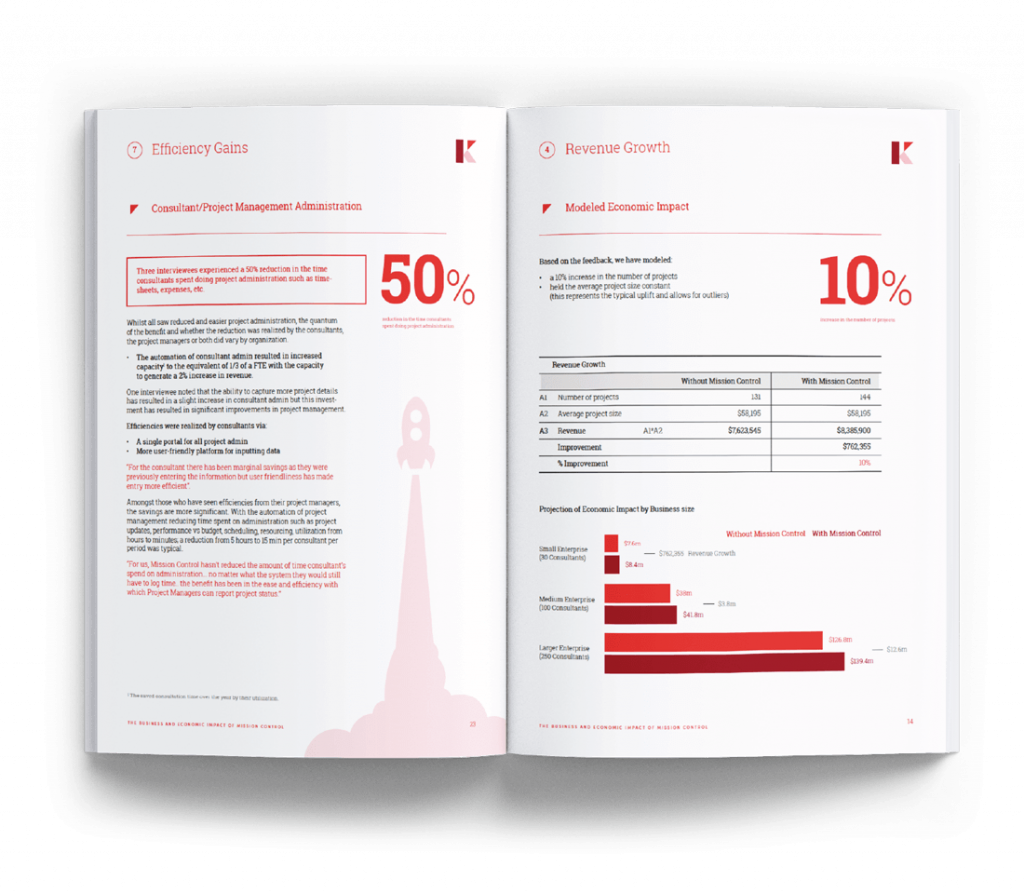While all projects contain some uncertainty, managing a project during an economic downturn, a pandemic or any other tough time in business can be especially difficult for project managers. There’s financial pressure as senior executives push for budget cuts. You may have to let go of some of your resources, requiring you to find better ways to utilize the few remaining ones as efficiently as possible.
So, what should you do to keep your projects going in the midst of an economic crisis? We share strategies to implement a strategic approach to project management so you can turn a recession into a rejuvenation.
5 Ways to Pivot Your Resource Management During a Recession
If you want to recession-proof your business, you must rethink how you manage your resources to make sure that you’re making the most of what you have. Here are five strategies you can start implementing right away.
1. Review your operations and stay lean
Take a good hard look at your current operations and identify where there’s resource wastage. For example:
- Do you have underworked employees?
- Is there any equipment you haven’t used for months at a time?
- Are you running too many projects simultaneously?
- Are you spending money on projects with little to no return on investment?
All these issues could be causing your organization to haemorrhage money. And as we all know, you want to spend less and make more during a recession. Now is the time to cut out what’s unnecessary and stay lean and profitable.
2. Invest in your key projects
Analyze your projects—both underway and in the pipeline—to identify the ones you must complete and those that can wait. Focus time, attention, and money on the must-do projects and postpone those that aren’t urgent.
Cancel floundering projects and use the funding and resources you would have spent on these projects to complete your must-have projects instead.
3. Keep your best people
To survive any economic downturn, you’ll need your best workers. With the Great Resignation continuing to hit all industries hard, it’s now more crucial than ever to do what you can to retain your best employees.
Evaluate and adjust salaries regularly to make sure you’re paying your employees competitive compensation. You may not be able to increase pay during a recession, but consider providing other forms of compensation, such as bonuses.
In addition to competitive wages, boost employee morale through perks such as flexible schedules and remote work options.
Assign your best workers to your must-do projects to keep your projects flourishing and your revenue flowing.
4. Forecast your costs better
Run financial forecasts to determine how long you can maintain a positive cash flow. Forecasting will also help you understand your actual project costs leading to better budget estimates and higher profit margins.
Forecasting will also enable you to analyze the organization’s current offerings and determine whether they align with current industry trends. Recession or not, people’s needs shift all the time, and you may just realize that some of your products or services are no longer in demand. If this is the case, then it makes better business sense to discontinue or update your product offerings or services.
5. Invest in digital transformation
Digital transformation is no longer a buzzword but a necessity for any business that wants to thrive and stay ahead of the competition.
But what exactly is digital transformation?
The Enterprisers Project states:
“Digital transformation is the integration of digital technology into all areas of a business, fundamentally changing how you operate and deliver value to customers. It’s also a cultural change that requires organizations to continually challenge the status quo, experiment, and get comfortable with failure.”
There’s no better time than a recession to change how you operate and deliver value to your customers. By implementing digital technology, you may find your project processes improve significantly. For example, incorporating a project management tool could help your project managers get better visibility into the project management lifecycle. This in turn will help you (and your team) understand how to leverage resources, processes, and technology to help their organizations realize their bottom line.
6 Ways Project Management Software Can Help You Survive a Recession
One thing is clear: project managers must find innovative ways to utilize resources efficiently for projects to survive a recession. Project management software can help you get closer to accomplishing this. Here’s how.
1. Manage your costs
In an economic downturn, it’s crucial to reduce costs and increase profits. Project management software such as Mission Control allows project managers to view real-time cost data and monitor overspending. With this kind of view, PMs can quickly identify when projects are about to experience cost overruns and scheduling snags. Early detection of such issues enables the manager to deal with them before they get out of hand.
2. Improve your efficiency
Having your best employees working on your projects isn’t enough. You need a team that’s working efficiently. In difficult financial times, you want to utilize your resources in the most efficient way to bring maximum value to the business.
A project management tool can help accelerate your team members’ efficiency by allowing you to track each member’s output. For instance, Mission Control offers timesheets project managers can use to track time and see how employees utilize their work time. Time tracking will encourage your team to be more productive, save you time, and add much-needed dollars to your bottom line.
3. Unify your workflow
Project management software allows your organization to unify and automate the workflow across the organization. Everyone in the company can access all data in one central hub. This makes it easier for the entire organization to collaborate on projects and work towards a similar goal.
4. Balance your resource management
When you’re forced to operate with a lean workforce, it may be easy to overwork your resources affecting their productivity. You’ll need an effective resource management strategy to keep workflow balanced between employees.
Project and resource management tools offer the best features for planning and assigning tasks. They give you reliable visibility into the workloads of the entire team and identify any resource bottlenecks.
5. Retain your customers
Winning new clients can be challenging during a recession. It’s more cost-effective to keep your existing customers happy. A project management tool can help enhance customer satisfaction by providing a systematic method for documenting and tracking critical issues that might affect project delivery. You also have a reliable tool to keep your customers updated on the project’s progress.
Recession or no recession, market conditions can change quickly. Project managers can eliminate uncertainty as long as their projects center on strategic thinking, innovation, and operational efficiency. By rethinking how you manage your projects, you can ensure they’re handled efficiently, continue through any business crisis, and provide a strong recovery afterward.
6. Simplify your tech stack
We speak with countless new prospects who come to us looking for a project management platform who are often using several smaller, disconnected tools to run their project management, including task apps, time apps, billing apps and capacity apps. Not only are they paying more for these extra subscriptions but they have 3 or 4 times more tools to be across which can lead to process complexity, staff resentment and often client dissatisfaction – whether you are exploring project management platforms or any other system, now is the time to streamline and optimize your stack platform!
Mission Control’s TEI
We recently commissioned a Total Economic Impact (TEI) Report which dives into the commercial impacts of Mission Control within the businesses of our customers. The below image and dot points depict the average Mission Control impact across our independently interviewed and verified customers:
- 45% increase in efficiency
- 10% increase in project volume
- 6,156% ROI
While businesses should be creating efficiencies regardless of the macro-economic climate, it’s even more important in times of economic downturn that they find innovative ways to utilize resources efficiently for projects to survive a recession. Mission Control’s Project management software is one proven way to start saving your business, ride the wave and prepare to scale at the inevitable upturn.
Ready to get your business prepped for a recession? Find out how Mission Control can help you manage your projects efficiently to cut costs and save time.





